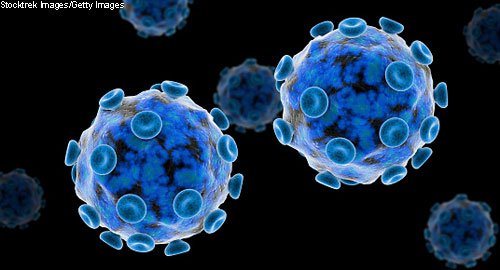 Rheumatologists are already familiar with one mosquito-borne virus, chikungunya, whose presentation mimics arthritis. Now, a new mosquito-borne flavivirus, Zika virus, is capturing headlines as it spreads through Puerto Rico and the Southeastern U.S. The mosquito-borne virus has now become an international public health concern. Like many viral infections, it can present with arthralgia and arthritis.
Rheumatologists are already familiar with one mosquito-borne virus, chikungunya, whose presentation mimics arthritis. Now, a new mosquito-borne flavivirus, Zika virus, is capturing headlines as it spreads through Puerto Rico and the Southeastern U.S. The mosquito-borne virus has now become an international public health concern. Like many viral infections, it can present with arthralgia and arthritis.
What’s more, Lancet reported in April that 42 patients were diagnosed with Guillain-Barré syndrome (GBS) during the Zika virus outbreak in French Polynesia. The authors of the paper calculated that for every 100,000 people infected with Zika virus, 24 would develop GBS.1
The Zika virus has historically been found in Africa and Southeast Asia, where it rarely caused human disease. This has changed over the past year, however, as Zika virus spread throughout Latin America and Zika virus infection has become associated with human disease. Thankfully, most Zika virus infections appear to be asymptomatic. But pregnant women are particularly vulnerable to the negative effects of a Zika virus infection, because Zika virus has now been identified as a cause of microcephaly and other severe fetal brain defects.
Although Zika virus is primarily transmitted by mosquitoes, public health officials have recently documented the sexual transmission of the virus. Up until now, all reported cases of sexual transmission of Zika virus resulted from intercourse with an infected man during, shortly before the onset of or shortly after the onset of symptomatic illness. On July 15, the New York City (NYC) Department of Health and Mental Hygiene (DOHMH) reported that a non-pregnant woman appears to have infected her male partner during a single event of condomless vaginal intercourse. The intercourse occurred on the day she returned to the U.S. after traveling to an area with an ongoing Zika virus outbreak. The following day (Day 1) she developed fever, fatigue, a maculopapular rash, myalgia, arthralgia, back pain, swelling of the extremities and numbness and tingling of the hands and feet. Three days later, the woman tested positive for Zika virus RNA in her urine and serum as determined by rRT-PCR.
The woman’s partner developed fever, a maculopapular rash, joint pain and conjunctivitis seven days (Day 6) after sexual intercourse. On Day 9, rRT-PCR testing detected Zika virus RNA in his urine, but not serum. On Day 17, the man confirmed that he had not traveled outside of the U.S. during the year before his illness and had not recently received a mosquito bite.
